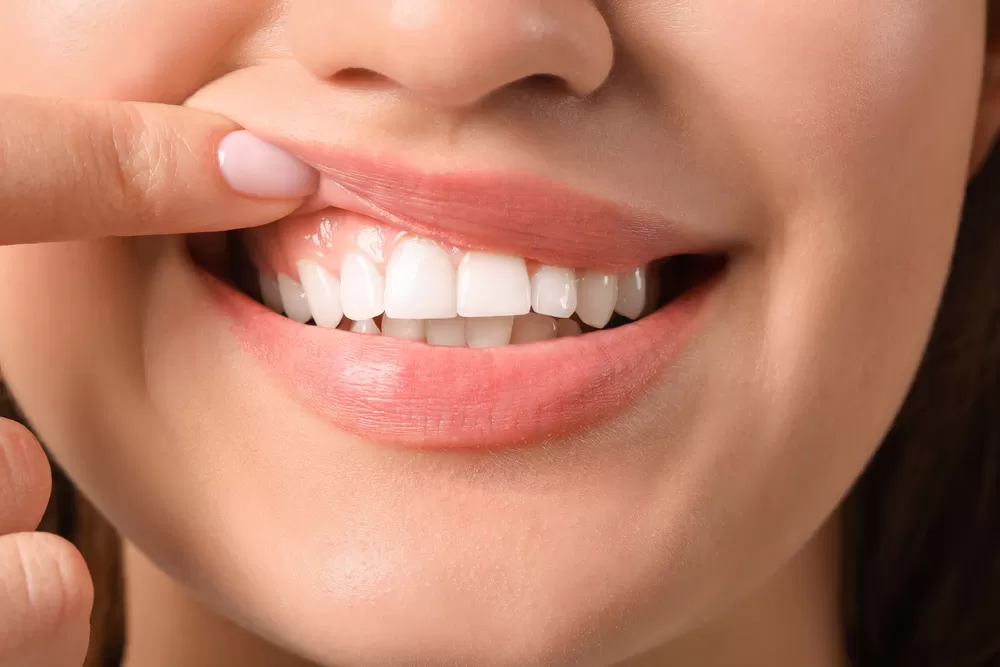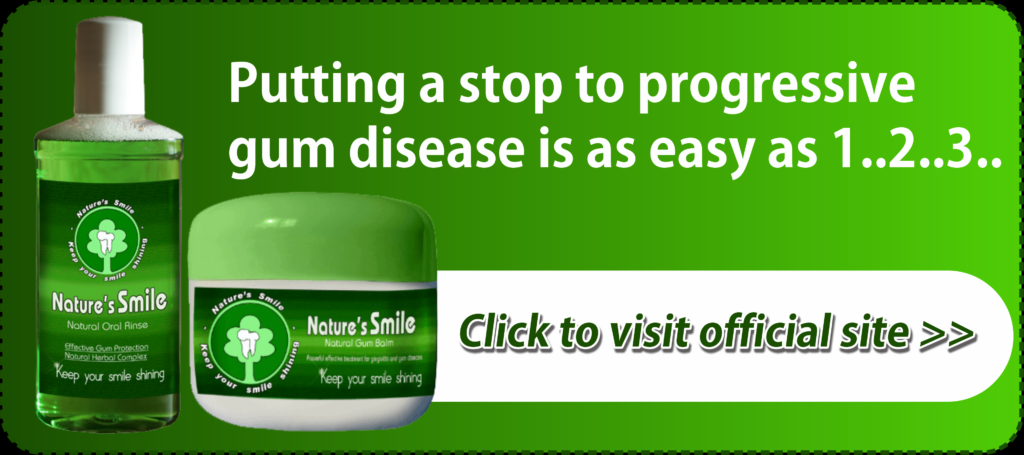Food and nutrients for healthy gums is crucial for overall oral health and wellbeing. Unfortunately, many individuals neglect their gum health, leading to various dental problems such as gum disease, gingivitis, and tooth loss. While regular brushing and flossing are important, there are also specific foods and nutrients that can help heal and strengthen gums. Research has shown that certain vitamins, minerals, antioxidants, probiotics, and omega-3 fatty acids can promote gum healing by reducing inflammation, strengthening teeth and bones, supporting the immune system, fighting harmful bacteria in the mouth.
The Importance of Diet in Gum Line Health cannot be overstated. Nutrient-rich foods, such as fruits, vegetables, and lean proteins, provide essential vitamins and minerals that contribute to strong gums and overall oral well-being.

This article will explore foods for healthy gums in detail to provide a comprehensive guide on how to improve gum health through diet. By incorporating these foods into your daily diet along with other lifestyle changes such as regular dental check-ups and quitting smoking if applicable – you can significantly improve your gum’s strength and reduce your risk of developing dental problems.
The Importance of Maintaining Healthy Gums
Maintaining good oral hygiene is crucial for preventing periodontal disease and reducing the risk of tooth loss. Preventative measures such as brushing twice a day, flossing regularly, and visiting the dentist every six months can help keep gums healthy. Neglecting these actions can lead to plaque buildup, which eventually hardens into tartar that irritates gums and causes inflammation. Over time, this inflammation can break down gum tissues and lead to deep pockets between teeth and gums where bacteria thrive. If left untreated, periodontitis may occur, causing the destruction of bone supporting teeth.
Common causes of gum disease include poor oral hygiene habits, smoking or using tobacco products, hormonal changes in women during pregnancy or menopause, diabetes mellitus or other systemic diseases that affect the immune system. Additionally, certain medications such as anti-depressants or anti-seizure drugs may also increase the risk of developing gum problems.
To maintain healthy gums and prevent periodontitis, it is essential to practice proper oral hygiene habits and seek professional dental care when necessary. By doing so regularly with a combination of effective brushing techniques like circular motions along with flossing daily will help remove food particles from between your teeth that could cause decay or infection in your mouth.
Vitamin C-rich foods are known to benefit gum health by strengthening blood vessels that support healthy tissue growth around teeth. Incorporating citrus fruits like oranges and lemons into your diet can provide ample amounts of vitamin C while also acting as natural cleansers for your mouth after meals. Other foods rich in this nutrient include strawberries, kiwi fruit, bell peppers amongst others – all great choices for maintaining healthy gums!

Vitamin C-rich Foods
Consuming an ample amount of fruits and vegetables that are abundant in vitamin C can significantly contribute to improving the overall health of oral tissues. Vitamin C, also known as ascorbic acid, is a powerful antioxidant that helps support the immune system. It promotes collagen synthesis, which is essential for maintaining healthy gums by improving their strength and resilience against infections.
Boosting immunity is one of the natural remedies for gum disease. Vitamin C plays a critical role in strengthening the immune system by increasing the production of white blood cells that fight off bacteria and viruses. A deficiency in this vitamin can lead to weakened immunity, making it harder for your body to ward off harmful pathogens that cause gum infections.
Some of the best sources of vitamin C include citrus fruits such as oranges, lemons, grapefruits, kiwis, strawberries, broccoli, bell peppers, spinach among others. Incorporating these foods into your diet on a regular basis may help prevent or alleviate gum diseases such as gingivitis or periodontitis. The next subtopic will delve into another group of nutrients necessary for optimal gum health- calcium and vitamin D-rich foods- vital minerals necessary for bone growth and maintenance.

Calcium and Vitamin D-rich Foods
Calcium and Vitamin D play important roles in maintaining healthy teeth and bones. Foods rich in these nutrients can help promote strong teeth and prevent tooth decay. Examples of calcium-rich foods include dairy products such as milk, cheese, and yogurt, while leafy greens like kale and spinach are good sources of both calcium and Vitamin D. Additionally, fatty fish like salmon contain high levels of Vitamin D which is necessary for proper absorption of calcium.

Dairy Products
Dairy products have been identified as a potential source of nutrients that may contribute to maintaining oral health. These products are rich in calcium and vitamin D, both essential for healthy teeth and gums. Here are some benefits of consuming dairy products:
- Calcium-rich dairy products such as cheese, yogurt, and milk help strengthen the tooth enamel by neutralizing the acid produced by bacteria.
- Dairy products also contain casein, a protein that forms a protective film over the teeth, preventing them from decay.
- Research suggests that consuming low-fat dairy products can reduce periodontal disease risk.
- Lactose intolerant individuals can opt for lactose-free or plant-based alternatives such as almond milk, soy milk, or tofu.

Leafy Greens
Leafy greens have been recognized as a significant contributor to oral health due to their high fiber content and ability to act as natural toothbrushes. The texture of leafy greens helps scrub the teeth clean, while the high fiber content stimulates saliva production which in turn neutralizes harmful bacteria. Additionally, leafy greens are rich in vitamins A and C, both of which are crucial for maintaining healthy gums. Vitamin A helps keep the mucous membranes that line the gums healthy, while vitamin C is essential for collagen production which is necessary for gum tissue repair.
Incorporating leafy greens into your diet can be done through nutritious smoothies or salad recipes. For example, a green smoothie made with spinach, kale, banana, and almond milk is an easy way to get your daily dose of leafy greens without sacrificing taste. Alternatively, a salad with mixed greens topped with grilled chicken or salmon can make for a satisfying and nourishing meal. By incorporating these healthy options into your diet regularly, you can promote gum healing and overall oral health.

Fatty Fish
The consumption of fatty fish has been correlated with improved oral health due to its high levels of omega-3 fatty acids, which have anti-inflammatory properties that may help reduce the risk of periodontal disease. In addition to benefiting oral health, the benefits of fatty fish for overall health are numerous. Here are four easy ways to incorporate more fatty fish into your diet:
- Add salmon or tuna to salads for a boost of protein and healthy fats.
- Grill or bake a fillet of salmon or trout as an entrée for dinner.
- Use canned sardines or anchovies in sandwiches, wraps, or pasta dishes for a savory flavor and added omega-3s.
- Snack on smoked salmon with crackers and cream cheese as a quick and satisfying snack.
Incorporating these simple changes into your diet can provide numerous benefits for both oral and overall health. Incorporating a variety of sources is key in reaping the full benefits these nutrients have to offer.

Foods with Omega-3 Fatty Acids
Research has shown that incorporating sources of omega-3 fatty acids in one’s diet may have potential benefits for oral health. Sources of omega-3s include fatty fish such as salmon, mackerel, and sardines. However, vegetarian alternatives like chia seeds, flaxseeds, and walnuts also contain significant amounts of these essential fatty acids.
Omega-3s are known for their anti-inflammatory properties, which can help reduce gum inflammation and prevent the development of periodontal disease. They also promote overall health by reducing the risk of heart disease, stroke, and certain types of cancer. In addition to incorporating omega-3 rich foods into your diet, taking supplements or using fortified products like milk or eggs can also be an effective way to increase your intake.
To better understand the benefits of omega-3s for oral health and overall well-being, consider the table below:
| Omega 3-Rich Foods | Serving Size (grams) | Omega 3 Content (grams) |
|---|---|---|
| Salmon | 85 g | 1.8 g |
| Chia Seeds | 28 g | 4.9 g |
| Flaxseeds | 28 g | 6.5 g |
Incorporating sources of omega-3s in your diet not only supports oral health but also promotes overall wellness. By including foods like salmon, chia seeds, and flaxseeds in your meals or taking supplements as needed, you can reap the benefits of this vital nutrient without sacrificing taste or variety in your diet.

Foods with Antioxidants
Exploring the benefits of incorporating antioxidants into one’s diet, this section highlights how certain foods can protect against oxidative damage caused by free radicals. Free radicals are unstable molecules that can cause cellular damage and inflammation in the body, including in the gums. Antioxidants work to neutralize these harmful molecules and reduce their damaging effects.
The best sources of antioxidants include brightly colored fruits and vegetables such as berries, leafy greens, tomatoes, peppers, and citrus fruits. These foods are high in vitamins A, C, E, and beta-carotene which have been shown to improve overall gum health by reducing inflammation and promoting tissue repair. In addition to whole foods sources of antioxidants, green tea is also a great source of polyphenols which have been shown to improve periodontal health.
Incorporating antioxidant-rich foods into your diet is an easy way to support your gum health. By consuming a variety of colorful fruits and vegetables along with drinking green tea regularly you can help protect your gums from oxidative stress caused by free radicals.
Probiotic-rich Foods
Incorporating probiotic-rich options into one’s dietary routine can support a balanced bacterial environment in the oral cavity, ultimately promoting gum health. Fermented options like kefir, kimchi, and sauerkraut are excellent sources of probiotics that contribute to gut health by introducing beneficial bacteria into the system. These foods also provide nutrients such as vitamin K2, which is important for bone health.
Probiotics work by balancing the ratio of good and bad bacteria in the gut and mouth. When there is an imbalance of harmful bacteria in the oral cavity, it can lead to gum disease and inflammation. Probiotic-rich foods help to reduce inflammation and support a healthy immune response. Eating these foods regularly can promote overall oral health.
In addition to fermented options, other probiotic-rich choices include yogurt, kombucha, miso soup, and tempeh. Incorporating these foods into one’s diet can be an easy way to improve gut health and support healthy gums. By adding more probiotic-rich options while limiting processed or sugary foods that harm good bacteria levels in the system, individuals can take steps towards better oral hygiene practices.

Foods to Avoid
Maintaining healthy gums involves not only consuming foods with probiotics but also avoiding certain types of foods. Sugary foods and drinks, processed foods, and sticky foods are among the key culprits that can harm gum health. These types of food contribute to plaque buildup, which can lead to inflammation and gum disease if left unchecked. Therefore, it is important to limit or avoid these types of food in order to promote optimal gum health.
Sugary Foods and Drinks
Consumption of sugary foods and drinks has been linked to an increased risk of dental caries, which can lead to gum disease. Although it is tempting to indulge in sweets and soft drinks, individuals should be mindful of their consumption as these items contain hidden sugars that can harm the teeth and gums. Here are a few healthy alternatives that can satisfy the sweet tooth without causing any damage:
- Chewing sugar-free gum: Gum chewing stimulates saliva production, which helps neutralize harmful acids in the mouth.
- Eating fresh fruits: Fruits like apples and strawberries contain natural sugars that are less harmful to teeth than processed sugars found in candy bars or soft drinks.
- Drinking water instead of soda: Soda contains large amounts of sugar that stick to teeth and cause decay over time. Switching to water not only quenches thirst but also rinses away food particles from the mouth.
- Using honey or maple syrup as a sweetener: These natural sweeteners contain antioxidants and minerals that promote overall health while satisfying cravings for sweetness.
As mentioned earlier, sugary foods and drinks should be avoided as much as possible for better oral health outcomes. In addition, processed foods should also be limited or eliminated from one’s diet since they often contain high levels of salt, fat, and other additives that can contribute to inflammation in the body and increase the risk of developing chronic diseases such as diabetes or heart disease.

Processed Foods
Processed foods have been linked to increased inflammation in the body and an elevated risk for chronic diseases like diabetes and heart disease. These types of foods are often high in sugar, salt, and unhealthy fats while lacking essential nutrients that promote good health. When it comes to oral health, processed foods can contribute to plaque buildup, which can lead to gum disease if left untreated.
To make healthier choices for your gums and overall health, it’s important to substitute processed foods with whole, nutrient-dense alternatives. The following table provides examples of healthy substitutes:
| Processed Foods | Healthy Substitutes |
|---|---|
| White bread | Whole grain bread |
| Canned fruit in syrup | Fresh fruit |
| Pre-packaged snacks | Raw nuts or seeds |
| Frozen dinners | Home-cooked meals |
By making these simple substitutions, you can reduce the impact on your oral health and improve your overall well-being.
Sticky Foods
Processed foods are often high in sugar, salt, and unhealthy fats. They can lead to inflammation in the body, including the gums. It is best to avoid processed foods as much as possible and opt for whole, natural foods instead. However, even some natural foods can be detrimental to gum health if they are sticky.
Sticky foods can get stuck in between teeth and stay there for a prolonged period of time. This can lead to an increased risk of tooth decay and gum disease. Healthy snacks that are good for oral hygiene include fresh fruits and vegetables like apples, carrots, celery, and broccoli. These crunchy snacks help clean teeth while also providing important nutrients for gum health. Another option is unsweetened yogurt or cheese which contain calcium that helps strengthen teeth and bones. Incorporating healthy snacks into your diet can play a vital role in maintaining good oral hygiene alongside regular brushing and flossing.
Lifestyle Changes
Incorporating modifications to one’s daily habits and routines has been shown to potentially improve overall oral health. By making small changes, individuals can help prevent gum disease and promote healthy gums. Here are some lifestyle changes that may be beneficial:
- Quit smoking: Tobacco use is a significant risk factor for periodontal disease and can lead to poor healing after dental procedures.
- Reduce stress: Stress can weaken the immune system and increase inflammation, which may contribute to gum disease. Finding ways to manage stress, such as yoga or meditation, may help improve oral health.
- Exercise regularly: Regular physical activity has been associated with a reduced risk of periodontitis. Exercise helps improve circulation throughout the body, including the gums.
It is important for individuals to practice good dental hygiene on a daily basis in addition to making these lifestyle changes. Brushing twice a day, flossing daily, and using mouthwash can all help prevent gum disease. Additionally, visiting the dentist regularly for cleanings and check-ups is essential for maintaining optimal oral health.
https://gumlinehealer.com/lifestyle-habits-for-healthy-gums/
Incorporating simple lifestyle changes into one’s daily routine may have a significant impact on improving oral health and promoting healthy gums. Quitting smoking, reducing stress levels through techniques like yoga or meditation, exercising regularly, practicing good dental hygiene habits consistently will go a long way towards preventing gum diseases from taking root in your mouth. Taking care of our teeth should always be given priority as it not only enhances our appearance but also boosts our confidence while enabling us to enjoy our favorite foods without discomfort or pain!
Further Entities
- https://www.cdc.gov/oralhealth/conditions/periodontal-disease.html
- https://www.health.harvard.edu/topics/nutrition
- https://en.wikipedia.org/wiki/Antioxidant
Frequently Asked Questions
How long does it take for food and nutrient changes to improve gum health?
Timeline expectations for improving gum health through dietary adjustments can vary depending on the severity of the condition and individual factors such as age, overall health, and lifestyle habits. In general, it may take several weeks to a few months to see noticeable improvements in gum health after making dietary changes. However, it is important to note that these changes should be sustained over time for long-term benefits. Incorporating nutrient-dense foods such as leafy greens, fruits, and lean proteins while limiting processed foods high in sugar and unhealthy fats can support gum health by reducing inflammation and promoting tissue repair. Additionally, staying hydrated and practicing good oral hygiene habits can further enhance the effectiveness of dietary adjustments in improving gum health.
Are there any specific supplements that can aid in gum healing?
Supplementation can offer benefits for gum healing. Vitamin C, for example, helps in collagen synthesis and reduces inflammation. A suggested dosage is 1000mg per day, but it is important to consult with a healthcare provider before taking high doses of any supplement. Coenzyme Q10 may also benefit gum health by reducing gingival inflammation and improving periodontal status. The recommended daily dose is usually around 100-300mg. Omega-3 fatty acids have anti-inflammatory properties that can help reduce gum inflammation and improve overall oral health. A daily intake of 500mg to 1000mg of EPA/DHA is recommended for adults to achieve optimal benefits. It’s important to note that supplements should not replace a balanced diet or good oral hygiene practices, and always seek advice from a dental professional before starting any supplement regimen.
Can gum disease be completely cured through diet and nutrient changes alone?
Gum disease is a common dental issue that affects many individuals worldwide. Although there are various treatment options available, people often wonder if gum disease can be entirely cured through diet and nutrient changes alone. While there is no straightforward answer to this question, it is essential to understand the role of nutrition in promoting gum health and preventing further damage. Certain foods such as leafy greens, fruits high in vitamin C, and dairy products have healing properties that can aid in reducing inflammation and supporting tissue repair. However, it is crucial to note that a proper diet alone may not be enough to cure gum disease entirely. Therefore, seeking professional advice from a dentist or periodontist should always be considered when dealing with any oral health issues.
What are some alternative remedies for gum health, such as herbal supplements or natural remedies?
Herbal remedies and natural supplements have been touted as alternative remedies for gum health. Studies suggest that certain herbs, such as sage and chamomile, may have anti-inflammatory properties that could aid in reducing gum inflammation. Natural supplements, like CoQ10 and vitamin C, have also shown potential in improving gum health by supporting collagen production and reducing oxidative stress. However, it is important to note that these remedies should not be considered a replacement for healthy gums diet and lifestyle changes. A balanced diet rich in vitamins and minerals can help support overall oral health while avoiding smoking and excessive alcohol intake can reduce the risk of developing gum disease. As with any health concern, it is recommended to consult with a healthcare professional before incorporating any new herbal or natural supplement into your routine.
How do certain medical conditions or medications affect gum health, and what dietary changes can be made to counteract these effects?
Medical conditions and certain medications can have negative effects on gum health. Conditions such as diabetes, HIV/AIDS, and osteoporosis can all contribute to the development of periodontal disease. Medications such as antihistamines, antidepressants, and blood pressure medications may also cause dry mouth or affect the body’s ability to fight off infection in the gums. To counteract these effects, nutritional remedies can be implemented. A diet rich in vitamins C and D, calcium, and omega-3 fatty acids has been shown to promote healthy gum tissue. Additionally, probiotics found in fermented foods like yogurt or kefir may help balance oral microbiota and reduce inflammation in the gums. Overall, awareness of one’s medical conditions and medications is crucial for maintaining optimal gum health through proper nutrition.
Conclusion
Maintaining healthy gums is crucial for overall oral health. Consuming nutrient-rich foods can aid in healing and preventing gum disease. Vitamin C-rich foods such as citrus fruits, kiwis, and bell peppers can boost the immune system and help prevent inflammation. Calcium and vitamin D-rich foods like dairy products, leafy greens, and fish can strengthen bones and teeth.
Foods with omega-3 fatty acids, such as salmon, nuts, and seeds, have anti-inflammatory properties that can reduce gum inflammation. Antioxidant-rich foods like berries and green tea can protect against damage from free radicals. Probiotic-rich foods like yogurt and kefir contain beneficial bacteria that promote oral health. Avoid sugary or processed foods that contribute to plaque buildup on teeth and gums. Proper dental hygiene practices should also be followed in conjunction with a nutritious diet for optimal gum health.
In conclusion, we discover the power of essential food and nutrients for healthy gums and overall oral well-being. Incorporating nutrient-dense foods into one’s diet is essential for healing and maintaining healthy gums. Foods rich in vitamins C and D, omega-3 fatty acids, antioxidants, and probiotics are crucial for promoting oral health while avoiding sugary or processed foods that contribute to gum disease development. By making lifestyle changes such as following a balanced diet along with proper dental hygiene practices will go a long way towards achieving optimal gum health.




